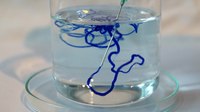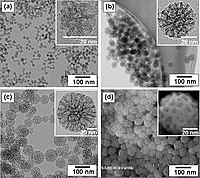
Performance analysis of a continuous serpentine flow reactor for electrochemical oxidation of synthetic and real textile wastewater: Energy consumption, mass transfer coefficient and economic analysis.
Sign Up to like & getrecommendations! Published in 2017 at "Journal of environmental management"
DOI: 10.1016/j.jenvman.2017.02.046
Abstract: A continuous flow electrochemical reactor was developed, and its application was tested for the treatment of textile wastewater. A parallel plate configuration with serpentine flow was chosen for the continuous flow reactor. Uniparameter optimization was… read more here.
Keywords: textile wastewater; real textile; textile; reactor ... See more keywords

Toward real textile wastewater treatment: Membrane fouling control and effective fractionation of dyes/inorganic salts using a hybrid electrocoagulation – Nanofiltration process
Sign Up to like & getrecommendations! Published in 2019 at "Separation and Purification Technology"
DOI: 10.1016/j.seppur.2019.01.070
Abstract: Abstract In the present study, the treatments of real textile wastewater were investigated by utilizing individual electrocoagulation (EC) and nanofiltration (NF) processes as well as their hybridization (EC-NF). EC pretreatment was performed using different electrode… read more here.
Keywords: real textile; inorganic salts; process; membrane ... See more keywords

The photodegradation of tri-dyes in the real textile effluent of S.I.T.E industrial zone of Karachi city based on central composite design
Sign Up to like & getrecommendations! Published in 2020 at "Indian Chemical Engineer"
DOI: 10.1080/00194506.2020.1729871
Abstract: ABSTRACT The study was successfully carried out in the presence of UV light using TiO2 and H2O2 system to purify the real textile discharge from tri-dyes namely Yellow 145(Y145), Reactive Red 195(RR195), Blue 222(Blue222). This… read more here.
Keywords: based central; composite design; real textile; central composite ... See more keywords

Facile and green synthesis of ZnO nanoparticles for effective photocatalytic degradation of organic dyes and real textile wastewater.
Sign Up to like & getrecommendations! Published in 2022 at "International journal of phytoremediation"
DOI: 10.1080/15226514.2022.2150142
Abstract: Remediation of organic dyes from wastewater in textile industries is a big challenge to decreasing water pollution. This study was aimed at the preparation of ZnO nanoparticles (NPs) and their application as a photocatalyst for… read more here.
Keywords: zno nanoparticles; organic dyes; zno; degradation ... See more keywords

Saline Sediments as a Suitable Source for Halophilic Inoculums to Degrade Azo Dyes in Synthetic and Real Textile Wastewaters by Microbial Electrochemical Systems
Sign Up to like & getrecommendations! Published in 2023 at "Applied Sciences"
DOI: 10.3390/app13095581
Abstract: The treatment of textile wastewater (TWW) loaded with recalcitrant azo dyes in bioelectrochemical systems (BES) rather than in physicochemical processes is a low-cost and environmentally friendly process. The main objective of this study is to… read more here.
Keywords: textile; azo dyes; sediments suitable; textile wastewaters ... See more keywords